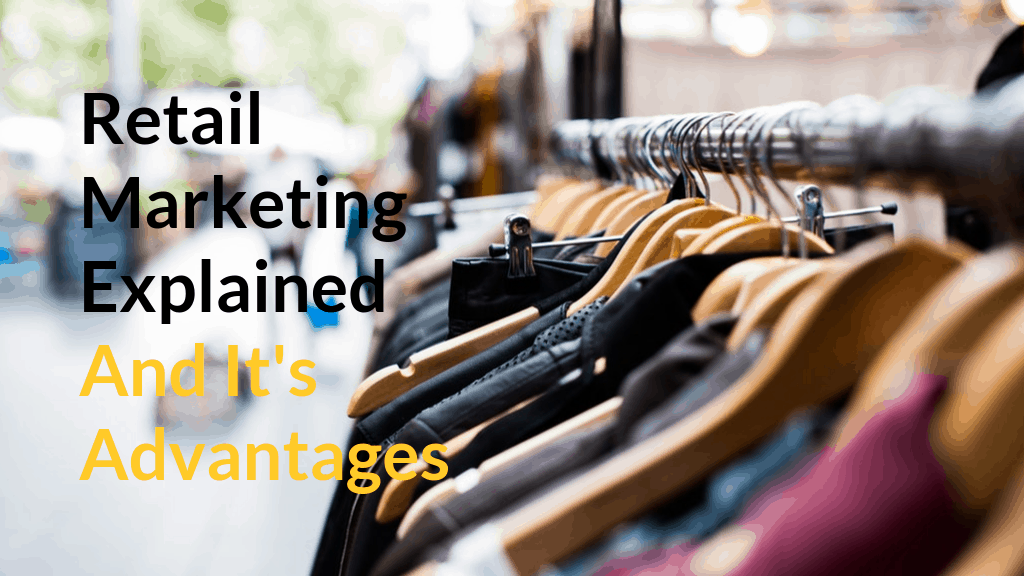Retail Marketing is the process of selling goods or services from businesses to customers. Similarly, retail marketing refers to promoting interest and awareness of those products and services to the general public – leading to increased sales and revenue. Just like e-commerce, there are several ways retail marketers use to market products to their potential audience. It’s not about promoting products or services, it’s about showcasing a product to the interested audience.
In simple words, retail marketing refers to getting the product to customers in a retail store. It involves manufacturing, promotion, presentation, and planning to increase sales, revenue, or leads.
Key Principles of Retail Marketing
As discussed earlier, there are several ways retail marketers utilize to promote a particular product to the interested audience. Following are 4 basic principles of retail marketing.
- Product: The best way to gain attention is to compartmentalize your product into a decent unit. How this can be done? Packaging! Quality packaging will derive the customers’ attention and will make your product stand out in a retail store. Make sure that your packaging stays a part of the experience and always use eco-friendly options.
- Price: How much profit you’ll be making per sale? Always set value-based pricing to gain attention. If you’re making way too much over a single sale, your audience might divert to another brand one day or the other. Adding 20-30% profit on the total cost of the product can be recognized as value-based pricing.
- Selling Place: Irrespective of the product’s quality, reasonable pricing, and other benefits, it is important to sell a product in the right place. If the product is out of the interested consumer’s reach, the quality measures don’t even matter.
- Promotion: Now this is by far the most important principle of retail marketing. Retail promotion can be anything from modern influencer marketing to traditional marketing.
Benefits of Retail Marketing
Now that we’re well aware of the principles of retail marketing, let’s discuss what good does it do to a business. Some benefits of retail marketing are as follow:
Brand Awareness
Retail marketing is certainly the best way to promote brand awareness – letting customers know about your product, how it benefits them, and what makes your product different than others. For instance, if your product promotes a healthy lifestyle, having the perfect packaging options, promotion, and value-based pricing will let customers know the best solution in the market.
Boosts Revenue
If you succeed in providing a competitive product to consumers, it will definitely boost your revenue, leads, and customer base. Thus, benefiting your company’s reputation as well as capital.
Creates New Jobs
Higher sales mean more resources and more resources creates new jobs. The direct effect of retail marketing will derive more customers to your product, an indirect effect will dramatically create new job opportunities at your company.
Word of Mouth
The perfect and most beneficial marketing is word-of-mouth. After selling the perfect product with a competitive price, quality, and other benefits, customers will eventually start talking about your brand. Sounds fair enough?
In a nutshell, retail marketing is certainly the best way to market your product, create brand awareness, and increase your company’s revenue to much extent. If you’ve been missing out any of the 4 principles in your retail marketing tactics, you’re probably leaving huge loads of money and customers on the table.
Retail Marketing vs. Commercial Marketing
Marketing as we have already learned is a very important area that focuses on customer persuasion. This encouragement is meant to help drive customers to buy or use one product over another. Marketing is simply the act of raising awareness of specific products in a competitive environment. However; there are many levels of marketing so it is important to understand one type from another.
The reaches of marketing not only extend into its many fields, for example; promotions, sales, retailing, and advertising and public relations but also into many industries such as agriculture, manufacturing, construction, and hospitality just to name a few. Although there are many similarities between both retail and commercial marketing, there are also vase differences, and both should carefully be identified.
Commercial Marketing
First things first, let’s make sure we understand what a commercial product is. A commercial product is any item that can be engineered and sold to a commercial enterprise, the public, or other industries. Some examples of what commercial products would include would be:
- Food and Beverages
- Beauty Products
- Home Appliances
- Heavy Industrial Equipment
- Automobiles
A brands identity is the ultimate goal of commercial marketing. How this is achieved is by forming a lasting relationship between clients and the products and services that are being provided. Let’s take for example a commercial on a specific beauty product aimed at an age group of 20 years of age to 25 years of age. The goal is to entice the potential “client” to buy and continue to buy this product so it is important to know what appeals to this targeted age group.
With that said, to appeal to this audience, this commercial may include young, trendy women using the product, the latest and most popular music listened to by this age group, as well as edgy and high fashioned models advertising the product. The strategy here is to make the consumer relate to the product and to become a loyal customer to that product and that brand.
In a nutshell, commercial marketing’s intent is to persuade not only private individuals but also corporations and private businesses to buy specific goods for gain and profit.
Retail Marketing
This type of marketing to go a bit further, share some of the same goals of commercial marketing, the difference though is the products are limited to retail items. Every day millions of these type items are bought and sold worldwide, some examples are:
- Books
- Clothing
- Auto Parts
- Toys
- Sporting Goods
- Grocery
Retail items can be found at general merchandise stores, specialty stores, non- store retailers, grocery stores, department stores, and convenience stores. You can also receive them through the mail, and of course the internet. Nowadays you can even conveniently buy retail items at kiosks and vending machines.
Retail can also consist of businesses that provide services such as barbershops, beauty salons, spas, or car rental agencies. Just like commercial marketing though, retailers also must promote awareness of their goods and services to entice consumers to buy “their” product over other retailers. The end game of any marketing scheme is to generate sales to gain profits.






